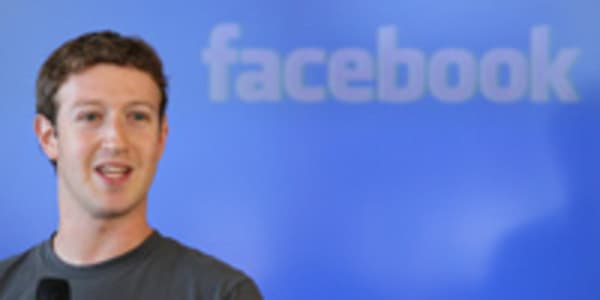General Motors purged a bit of steam from history’s largest IPOby an oddly timed announcement that they were stopping traditional Facebook advertising, slashing $10 million from the $40 million it spends on Facebook initiatives. (The other $30 million GM pays Facebook goes towards content creation and the agencies involved in the deal). GM has learned what the savvy marketers already knew — people are not lookingto buy on Facebook…yet. Facebook users believe their life (and the lives of their friends) is the most entertaining of 24/7 cinema, because they are the stars. Therein lies the key to monetizing Facebook. (Related: Facebook Prices )
Facebook is the online equivalent of your neighborhood pub or grade school drop-off spot. It’s friends and family together sharing experiences, information and gossip. Traditional advertising in that context can be both annoying and ineffective. Imagine someone interrupting your conversation by waving a big billboard between you and your friend. Yuk!
Social media advertisers are just realizing how influential the online equivalent of the short, but genuine, conversations at the pub can be. Sharing is most powerful in small groups of connected individuals.
If you have children, think about the last time you picked up your kids. You just bought a stylin’ new jacket from Patagonia and one of the other dads notices the coat. He says something about it – “Have you skied this year?” or “Was that on sale?” Typical conversations in the real world.
Trust makes that school yard exchange much more valuable than advertising ever could be. We trust and are influenced most by our first two tiers of friends (usually 15-20 people max). Their feedback and data is very valuable. How many times have you talked about a product or service and consequently influenced another person? It happens everyday. The burning question is how can companies get into those precious moments of truth? How can they make it to the Facebook Newsfeed or Timeline as a story?
The answer lies in the movies.
Reports indicate that Ford paid anywhere from $35-$50 million to have their vehicles appear in the James Bond hit “Quantum of Solace.” If we use round numbers to do the analysis on this investment we know the movie grossed about $600 million. The average movie ticket price is about $8 per person, according to the National Association of Theatre Owners. So that means approximately 75 million people saw the cars — at a cost of anywhere from 47 cents to 67 cents per person.
Savvy marketers in the next couple of years will do what I refer to as Newsfeed Product Placements (NPP). Rather than stars you don’t know – or don’t trust - using a product, brands will capture everyday people engaging with their brand. The smart brands will do this at the height of enjoyment and engagement, in real time. In fact they have already.
Go back to your new Patagonia jacket – and now imagine skiing at Vail Resorts and using their new social media experience program called EpicMix . This system uses dwinQ software to capture the moment in real time and automatically post a picture to your Epic, Facebook or Twitter account. No friction – just a quick capture and post of a great moment, with a brand logo in the corner. Perfect product placement.
Later that day an online friend sees your real-time picture from Vail and comments: “Hey great powder, how was skiing at Vail?” The value of that conversation to Vail is priceless.
Newsfeed Product Placement can be done for a fraction of the cost of blockbuster product placement, yet reap far greater effectiveness. Facebook enables applications and OpenGraph features that allow power branding within the Newsfeed today. American Eagle made it simple for friends to share what they just bought in conversations on Facebook. They saw a 57 percent increase in sales. The same holds true for ticket companies Ticketmasterand Eventbrite —they made it easy to share socially the tickets clients just bought – and according to Facebook, this drove incremental increase in ticket sales $5.30 and $2.52 respectively. This incredibly effective advertising is what will drive the largest IPO in history to a highly sustainable, profitable advertising platform.
Yes it’s true GM stopped running banner ads and silly videos on Facebook (while Ford just announced they are growing their spend). But I guarantee GM will start increasing what they spend on NPP and OpenGraph apps. As always with strange announcements just before big events, there is always more to the story than meets the eye. The real value GM can gain will come when they capture someone grinning from ear to ear as they race off the lot in a brand new Chevrolet Camaro; and GM immediately posts that moment on the proud owner’s Facebook page.
Facebook will be one of history’s biggest advertising successes as brands help eliminate friction and monetize the moment.
(Check out a bull/bear discussion of the Facebook IPO )
Patrick J. Sweeney II is a social media expert, author and speaker. He is President & CEO of dwinQ , a social media marketing company that provides frictionlessreal world connections to social media and helps brands like Facebook, Vail Resorts, Harley-Davidson, Lexus, and others monetize the moment. Follow him on twitter @PJSweeney or check out his blog at www.glidesocial.com
CNBC and YPO (Young Presidents’ Organization) have formed an exclusive editorial partnership, consisting of regional “Chief Executive Networks” in the Americas, EMEA and Asia-Pacific. These “Chief Executives Networks” are made up of a sample of YPO’s unrivaled global network of 19,000 top executives from 110 countries who are on the frontlines of the economy. The opinions of “Chief Executive Network” members are solely their own and do not reflect the opinions of YPO as a whole or CNBC.




